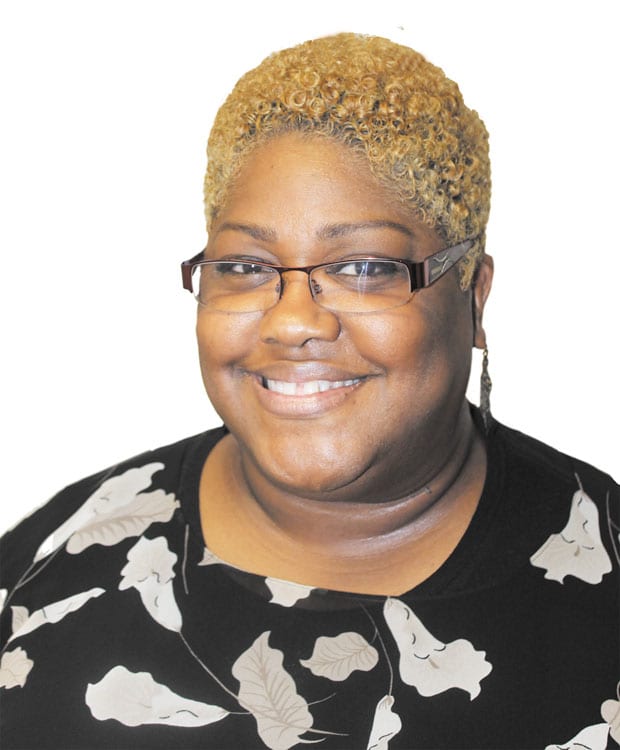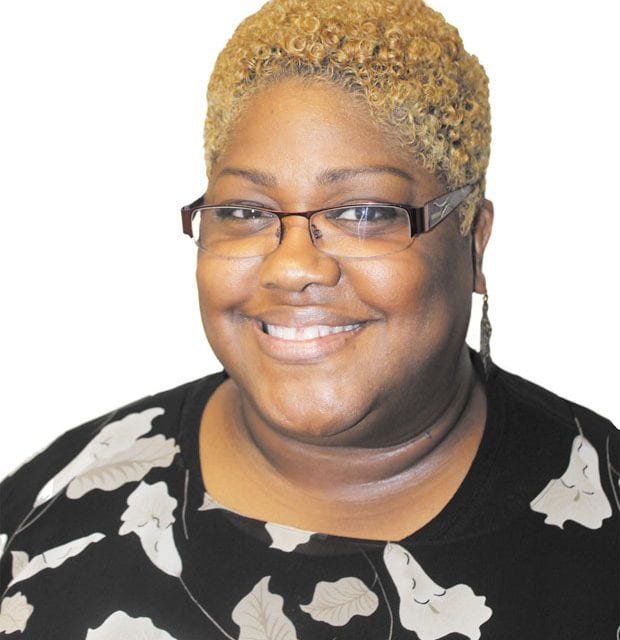At the Salvation Army in Dallas, preaching the gospel means caring for people without discrimination

Felica Richard, right, said the only thing that’s important is if they treated people with kindness. (David Taffet/ Dallas Voice)
DAVID TAFFET | Senior Staff Writer
This holiday season, you can donate to the bell ringers in Dallas without worrying that you are funding bigotry. Because here, the Salvation Army delivers its services without discrimination.
The agency offers its services to those in need, regardless of their gender identity or sexual orientation, a Dallas Salvation Army official guaranteed this week.
“If you identify as a woman, you will be put in a women’s shelter,” said Felica Richard, program manager of the Dallas Salvation Army’s domestic violence program.
The Salvation Army is a religious organization, Richard said, with a mission to preach the gospel of Jesus Christ to everyone.
But does that mean constant preaching?
“Preaching is not always with words, but with deeds,” Richard said. “Jesus wanted us to care for people without discrimination.”
The only question she has to answer, Richard said, is: Did you treat people with kindness?
“That’s what we mean when we say preaching the gospel,” she said.
Richard spoke about the services offered in the domestic violence shelter, but said the overnight men’s shelter and women’s shelter, the substance abuse program, the sack lunches or hot meals are also offered without judgment or discrimination. Those programs are offered in the Carr P. Collins facility in Oak Lawn, on the corner of Harry Hines Boulevard and Hudnall Street.
The domestic violence shelter for women and its programs operate out of a separate facility elsewhere. The location of the shelter isn’t made public for the safety of the women housed there.
Male victims of domestic violence are housed in a hotel. Richard said Salvation Army has a contract with the hotel, and that room reservations for the victims remain in Richard’s name for the safety of those clients. Hotel employees understand the necessary security procedures.
This year, the shelter has housed several transgender domestic violence victims, Richard said. And as the agency’s employees get more experience, they’re doing a better job for all their clients, including their trans clients.
The women are housed two to a room. Each room has its own bathroom. When one woman saw her roommate undressed in the bathroom, she went to the office to ask why a man was in her room. They explained her roommate was transgender and the situation was quickly resolved. But they learned from that experience.
Now, before a woman is admitted, the staff explains that all women are served without discrimination. That includes women who may be lesbian or transgender or of different races and those from other parts of the world who may speak a different language. It’s the person who can’t accept that diversity, Richard said, who wouldn’t be a good candidate for Dallas Salvation Army’s programs and services.
“We are a safe zone,” Richard said. “We want everyone to know they are safe.”
Richard said Dallas Salvation Army workers do not ask specifically about a potential client’s sexual orientation. But the topic can come up when the clients are talking about their attackers. Sometimes, Richard said, a woman will call her same-sex attacker a roommate, but later clarify that the other woman was in fact a spouse or partner.
Regardless, Richard said, “We don’t re-victimize. We want to make sure you get back to your self-sufficient healthy self. Healthy doesn’t mean you’re in a heterosexual relationship or not.”
Richard said since she has worked for the agency, there haven’t been any room changes because someone was transgender or lesbian.
Instead, she said, room changes usually occur because of clients’ schedules: When two women work and are on a similar schedule, it’s more convenient for both to house them in the same room.
Salvation Army’s domestic violence shelter can only house someone for up to 45 days. During that time the agency works with clients to develop a plan to help the person live independently. That might include getting housing, a job or proper identification, such as a corrected birth certificate for transgender women.
Not all domestic violence victims that talk to the Salvation Army’s phone counselors will leave their situation right away. For those who aren’t ready to leave, Richard suggested making a plan.
She encouraged them to get a P.O. box so their mail is already transferred to their own address rather than an address shared with the abuser. They should also start putting some money aside, leave a packed bag at a friend’s or in their office. But, she warned, they shouldn’t suddenly remove a number of belongings from the shared home, because that will tip off the abuser that something’s coming.
Move things gradually.
“Sometimes the best way to leave is with planning,” Richards said, adding that victims of domestic abuse need to remember that leaving a violent situation isn’t about no longer loving that person; it’s about safety,
Richard said she knows the idea of a shelter can be frightening, but she said Salvation Army’s domestic violence shelter, which she refers to as “the townhouse,” is a homey place with a patio and a yard and a playground for kids.
To access Salvation Army services, call 214-424-7050. Walk-ins welcome at 5302 Harry Hines Blvd. The domestic violence program may be accessed at 214-424-7208.
This article appeared in the Dallas Voice print edition December 9, 2016.


